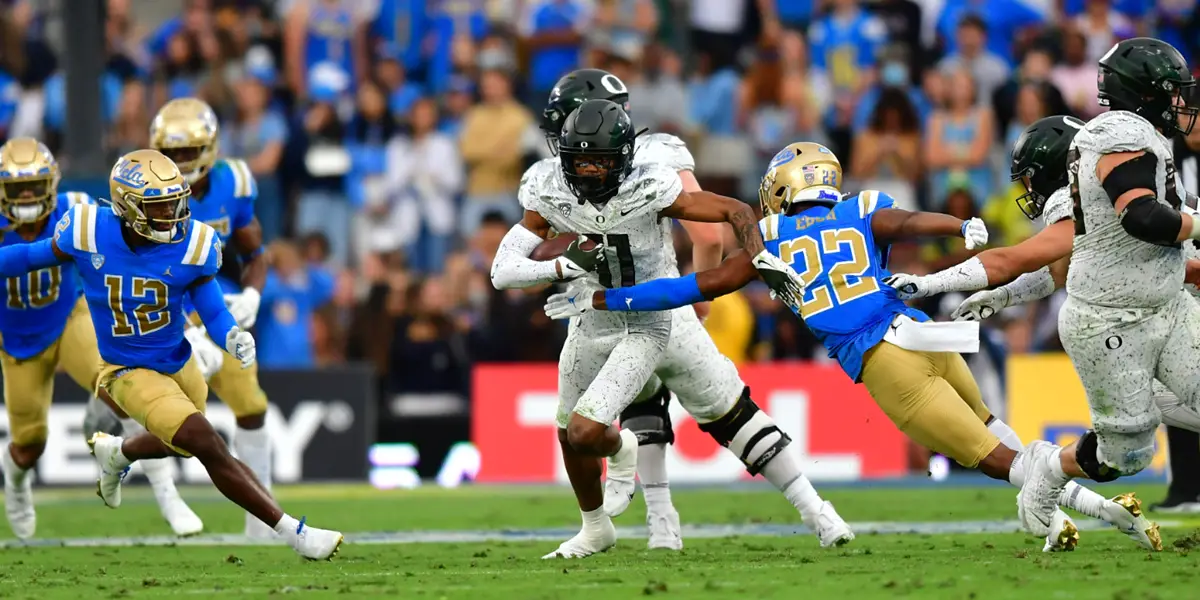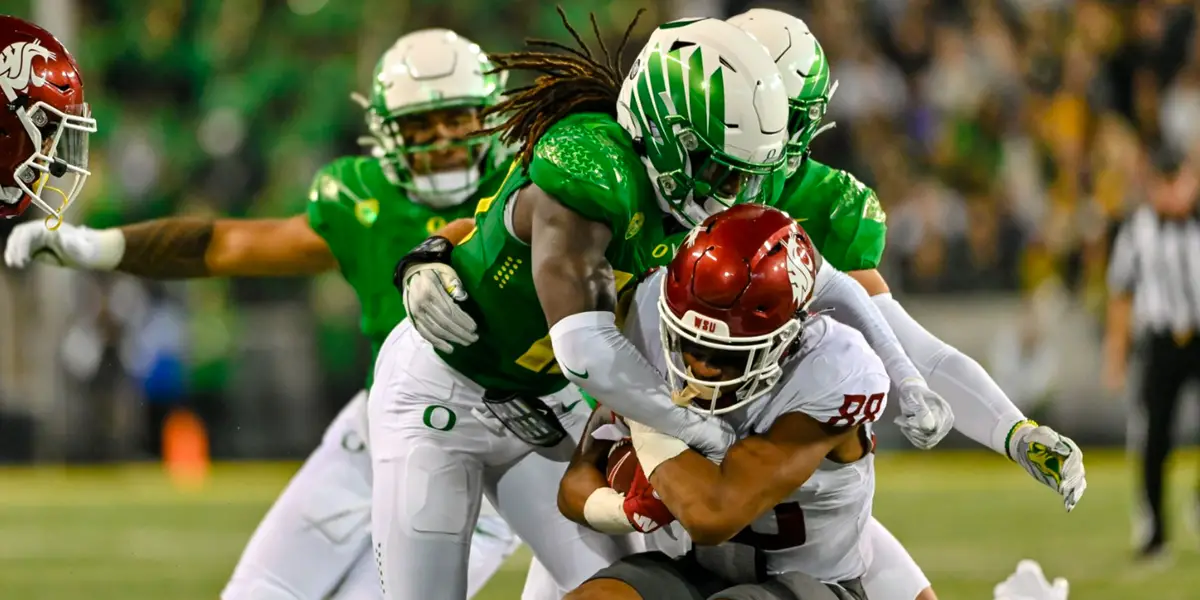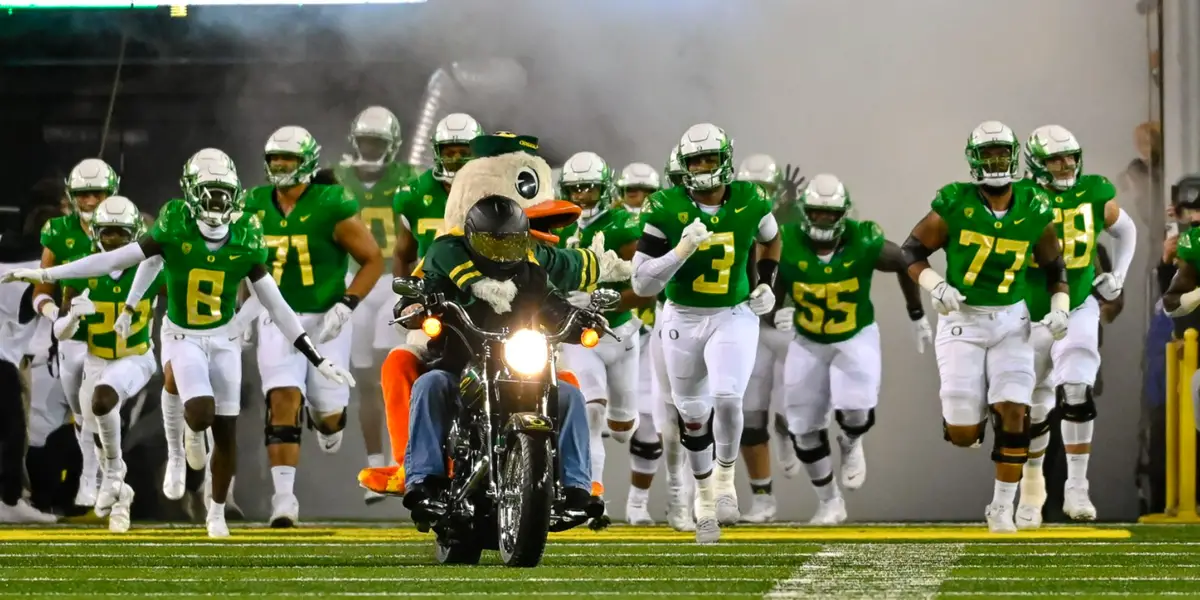The biggest myth in college football is that teams in the Southeast — specifically the SEC — are successful because “it just means more” to them. Fans residing in this part of the country love to boast about how dedicated their programs and fanbases are to football excellence, and they believe that dedication drives their success.
New Oregon offensive coordinator Kenny Dillingham is very familiar with this mentality, spending the vast majority of his career coaching in the South. He apparently thinks Oregon has a similar level of devotion, saying:
“(Oregon) is the only place west of Texas that has a mindset of the South when it comes to football. If you’re out west, this is the only real college town that can win championships.”
While I am all for Dillingham talking up the atmosphere of Eugene, this notion that teams in the West haven’t been winning championships because they don’t have the right mindset is ridiculous. It is true that teams east of the Mississippi have had much more recent success than their western counterparts, but it hardly has anything to do with their program-wide dedication to football.

Does Oregon’s talent have more to do with its success than its mindset?
Teams in the South — again, primarily SEC teams — have been successful because that’s where the vast majority of elite recruits play. Plain and simple.
Banner Society ranked all 50 states by the percentage of blue-chip prospects they produced in 2020, and unsurprisingly, seven of the 10 most talent-laden states were east of Texas. Of the remaining three states, one was Texas, and just two (California and Arizona) were in the West.
Recruiting is the number-one determinant of success in college football, and schools in the Southeast have premium access to the best talent the country has to offer. Of course, there are other factors that have contributed to the success of the best teams in the SEC, such as elite coaching to develop the talent they’re privy to. But even Alabama’s success starts with its ideal proximity to blue-chip recruits.
Location is by far the biggest hurdle Pac-12 teams have faced since the advancement of modern recruiting. Washington State, for example, could have the most dedicated football program in the country, and it would still struggle to be relevant, simply because it’s nearly impossible to attract numerous top-tier players to Pullman, Washington. Even the worst SEC schools are going to recruit better than upper-tier Pac-12 schools just because they’re closer to talent.

Recruiting at Washington State is a yearly struggle.
The only “mindset” that will determine whether Oregon or any western school is successful is the mindset its coaching staff has towards recruiting. Already facing an uphill climb due to the relatively scarce talent locally, Dan Lanning and his staff need to take Mario Cristobal’s approach and run with it, locking down the state of California and dabbling east to steal a few blue-chip prospects from SEC territory.
A continued focus on acquiring elite talent is what it will take for any school in the West to break through and challenge the blue-bloods of the East. That — not some regional standard of excellence — is what has been hamstringing the schools west of Texas in recent years.
Joshua Whitted
Morgantown, West Virginia
Top Photo by Craig Strobeck
Joshua is an adopted Duck fanatic, originally hailing from southwestern Pennsylvania. His love for the University of Oregon began as a young child when he became mesmerized by the flashy uniforms and explosive offenses of the Chip Kelly era, and now, he follows the team religiously. His fondest memory of the team is seeing De’Anthony Thomas race past Wisconsin defenders back in the 2012 Rose Bowl. A true football enthusiast, Joshua loves studying the intricacies of the game, and he aspires to become a professional sports journalist. Joshua now resides in Morgantown, West Virginia where he works in customer service. When he’s not watching Oregon replays, Joshua loves reading, writing, and spending time with his family. Contact: whittedjd@gmail.com

